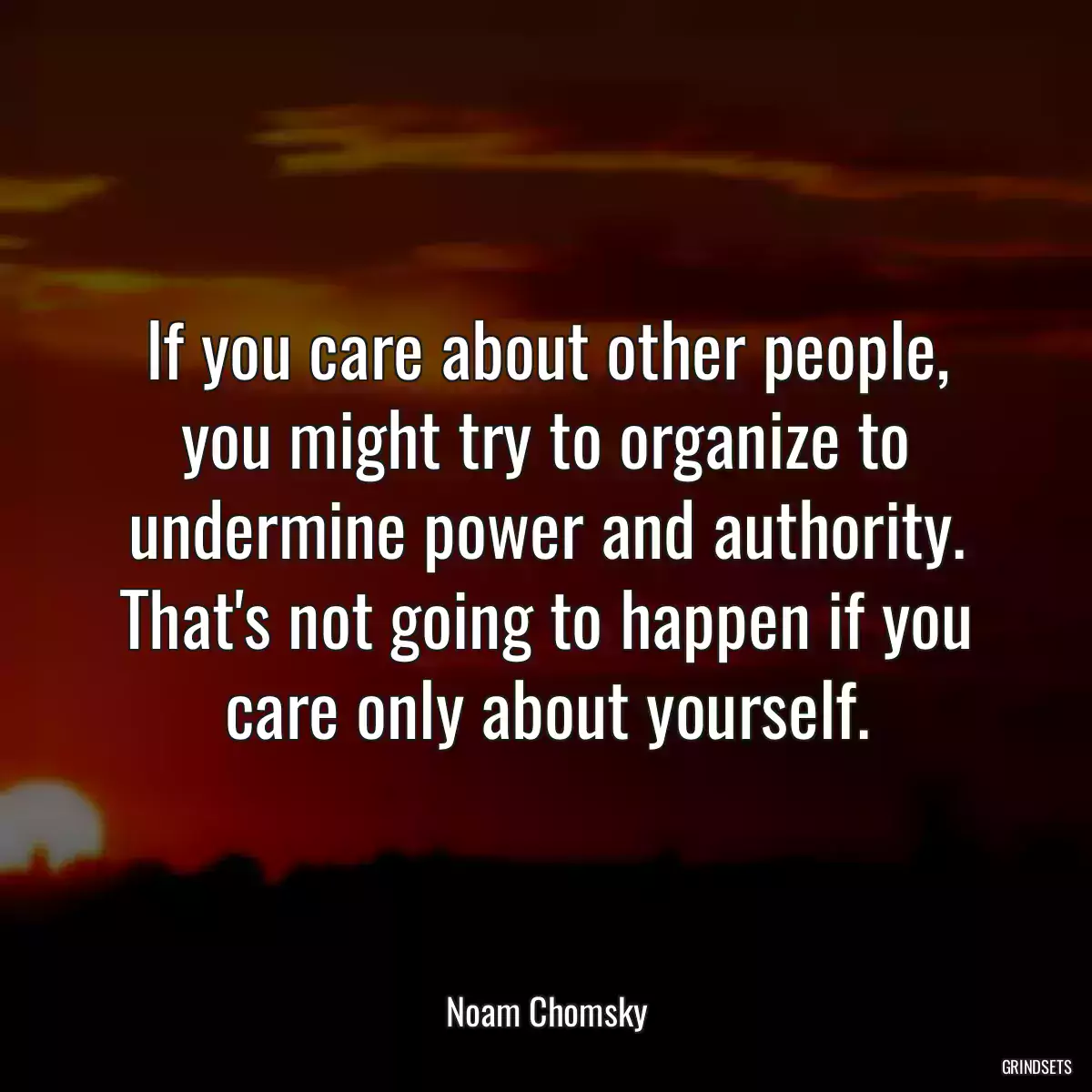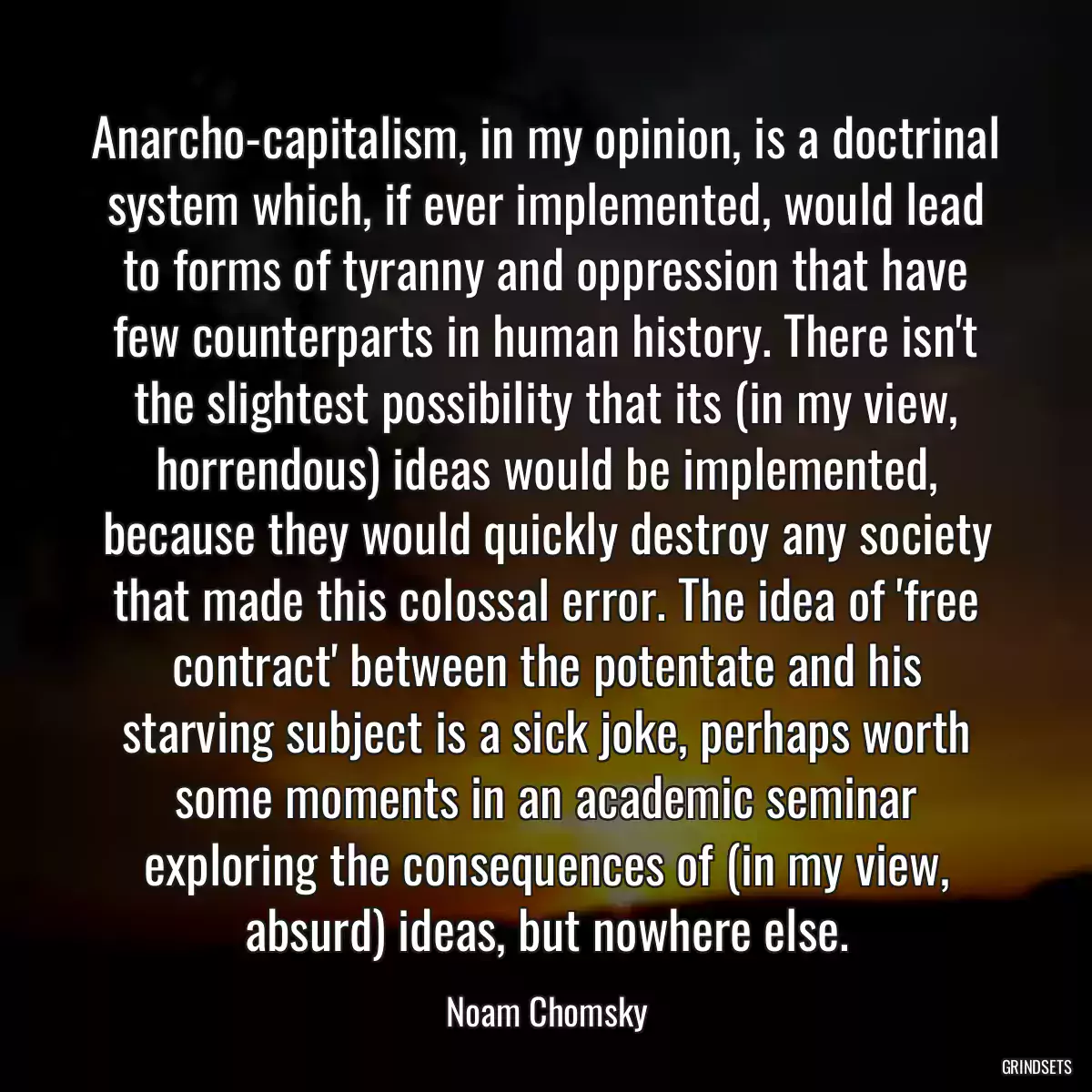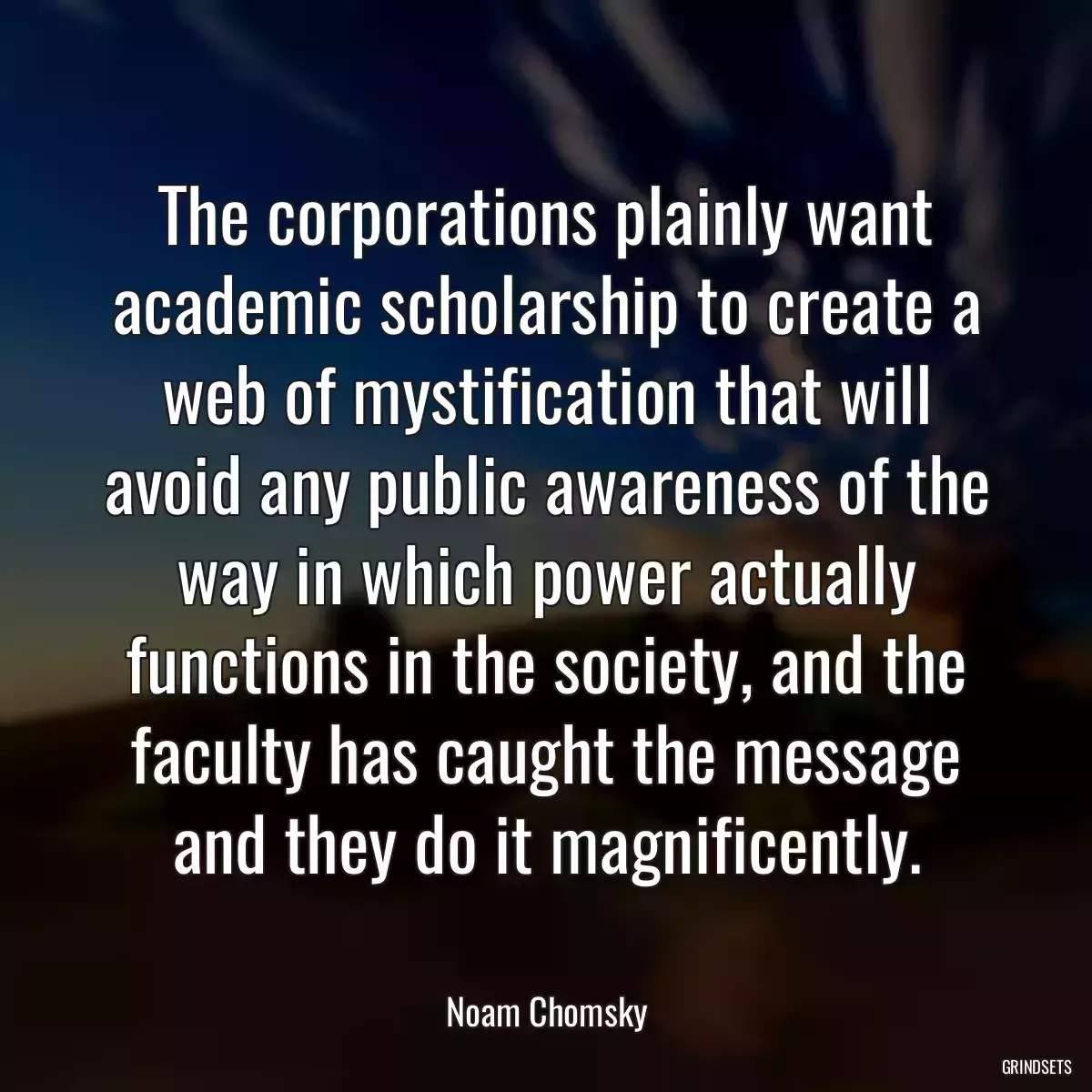
Quotes Noam Chomsky - page 5
Find dozens of Noam Chomsky with images to copy and share.

Peace is preferable to war. But it’s not an absolute value, and so we always ask, What kind of peace?
The US and Israel have demanded further that Palestinians not only recognize Israel's rights as a state in the international system, but that they also recognize Israel's abstract right to exist, a concept that has no place in international law or diplomacy, and a right claimed by no one. In effect, the US and Israel are demanding that Palestinians . . . formally accept the legitimacy of their expulsion from their own land. They cannot be expected to accept that, just as Mexico does not grant the US the right to exist on half of Mexico's territory, gained by conquest.
Radical activists can't ignore the fact that we live in this world, like it or not, and have to make difficult decisions about which paths are the best - or sometimes, the least harmful. There are no abstract formulas. Have to think through each case on its own.
You may also like
I have written occasionally on links between my scientific work and political thinking, but not much, because the links seem to me abstract and speculative.
I think the most important work that is going on has to do with the search for very general and abstract features of what is sometimes called universal grammar: general properties of language that reflect a kind of biological necessity rather than logical necessity; that is, properties of language that are not logically necessary for such a system but which are essential invariant properties of human language and are known without learning. We know these properties but we don't learn them. We simply use our knowledge of these properties as the basis for learning.
You can imagine a different world in which a number of species developed with different genetically determined linguistic systems. It hasn't happened in evolution. What has happened is that one species has developed, and the genetic structure of this species happens to involve a variety of intricate abstract principles of linguistic organization that, therefore, necessarily constrain every language, and, in fact, create the basis for learning language as a way of organizing experience rather than constituting something learned from experience.
Nothing in these abstract economic models actually works in the real world. It doesn't matter how many footnotes they put in, or how many ways they tinker around the edges. The whole enterprise is totally rotten at the core: it has no relation to reality.
We have to be a little cautious about not trying to kill a gnat with an atom bomb. The performances are so utterly absurd regarding the "post-truth" moment that the proper response might best be ridicule.

Anarcho-capitalism, in my opinion, is a doctrinal system which, if ever implemented, would lead to forms of tyranny and oppression that have few counterparts in human history. There isn't the slightest possibility that its (in my view, horrendous) ideas would be implemented, because they would quickly destroy any society that made this colossal error. The idea of 'free contract' between the potentate and his starving subject is a sick joke, perhaps worth some moments in an academic seminar exploring the consequences of (in my view, absurd) ideas, but nowhere else.
As a tactic, violence is absurd. No one can compete with the Government in violence, and the resort to violence, which will surely fail, will simply frighten and alienate some who can be reached, and will further encourage the ideologists and administrators of forceful repression.
French intellectual life has, in my opinion, been turned into something cheap and meretricious by the 'star' system. It is like Hollywood. Thus we go from one absurdity to another - Stalinism, existentialism. Lacan, Derrida - some of them obscene ( Stalinism), some simply infantile and ridiculous ( Lacan, Derrida). What is striking, however, is the pomposity and self-importance, at each stage.
This crazy ban on the seven states, where we can't accept immigrants, almost every analyst points out the obvious: It just increases the threat of terror. It lays the basis for terror. It's just like the atrocities in Abu Ghraib and Bagram and Guantanamo. They're the most fabulous recruiting techniques for Al Qaeda and ISIS.
There is no western concern for issues of aggression, atrocities, human rights abuses and so on if there's a profit to be made from them
U.S. domestic drug policy does not carry out its stated goals, and policymakers are well aware of that. If it isn't about reducing substance abuse, what is it about? It is reasonably clear, both from current actions and the historical record, that substances tend to be criminalized when they are associated with the so-called dangerous classes, that the criminalization of certain substances is a technique of social control.
The Russians were doing a lot of rotten things, you can point to them. But the idea that if you consider what Hans Morgenthau called "I called abuse of reality," the picture of the world was almost the opposite of what they presented. But somehow this sells and is continually repeated, at least in this kind of situation.
A dramatic, evocative, thoughtful and very accessible account of one of the most important stories of the century - and one of the most ominous, unless citizens are aroused to action to rein in abusive state power.
[Moral responsibilities] has nothing particular to do with academia, except insofar as those within it tend to be unusually privileged in the respects just mentioned.
You may also like

There is extensive critical scholarship that provides illustrations in many areas of scholarship. I've discussed many cases myself, while also citing and often relying on academic studies that disentangle these webs of mystification woven for the general public. It's impossible to provide illustrations that would even approach accuracy, let alone carry any conviction, without going well beyond the bounds of this discussion.